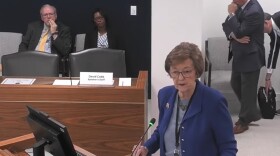State lawmakers still can’t come to an agreement over how large of a pay raise they want to give public school teachers.
House leaders want to give teachers an average six percent raise, while Senate leaders want to give them about 11 percent. But the Senate plan would cut more than 6,000 teacher assistant jobs to help pay for that larger salary boost.
It’s a concession that many school leaders say they can’t get behind. They want raises, but not by laying off thousands of teacher assistants.
Jeff Nash, a spokesman for Chapel Hill-Carrboro city schools, says large raises also present another tricky predicament.
“While we certainly want teachers to get a raise, and that’s a wonderful situation, it does present a financial burden on a district,” he said. “We have to find that local supplement, so that’s more money we have to pay out.”
North Carolina has a state teacher pay scale, but each local school district can add a supplement to help recruit teachers. That supplement can range depending on years of service or other factors decided by the district. If the state base salary goes up, then the supplement will theoretically go up. Many school districts have already approved their state budgets for 2014-15, so they would have to go back and try to find money to go toward raises if they are higher than expected.
School districts may also want to match raises for employees who are paid with local funds. Heath Morrison, superintendent of the Charlotte-Mecklenburg school system, says district leaders would have to ask for additional funding from county commissioners or cut about $6 to $7 million in their budget to match 11 percent raises under the Senate plan.
"We [will] need to do is to adjust our budgets to whatever the salary increases are at the state level for our employees paid by both local and federal funds," said Morrison.
Lawmakers are expected to continue negotiations on teacher raises this week.








